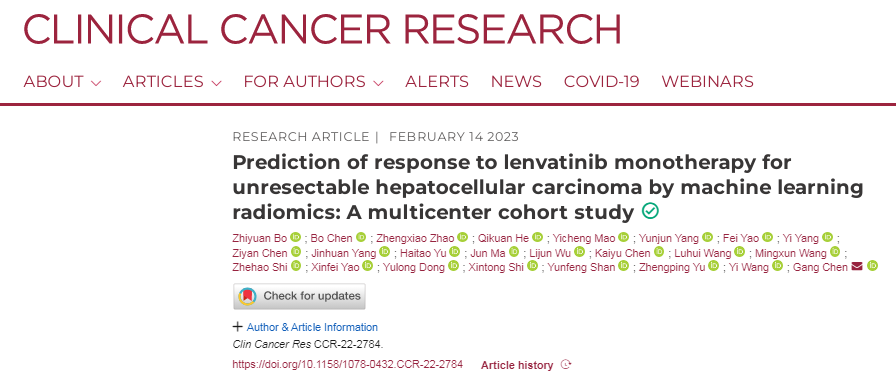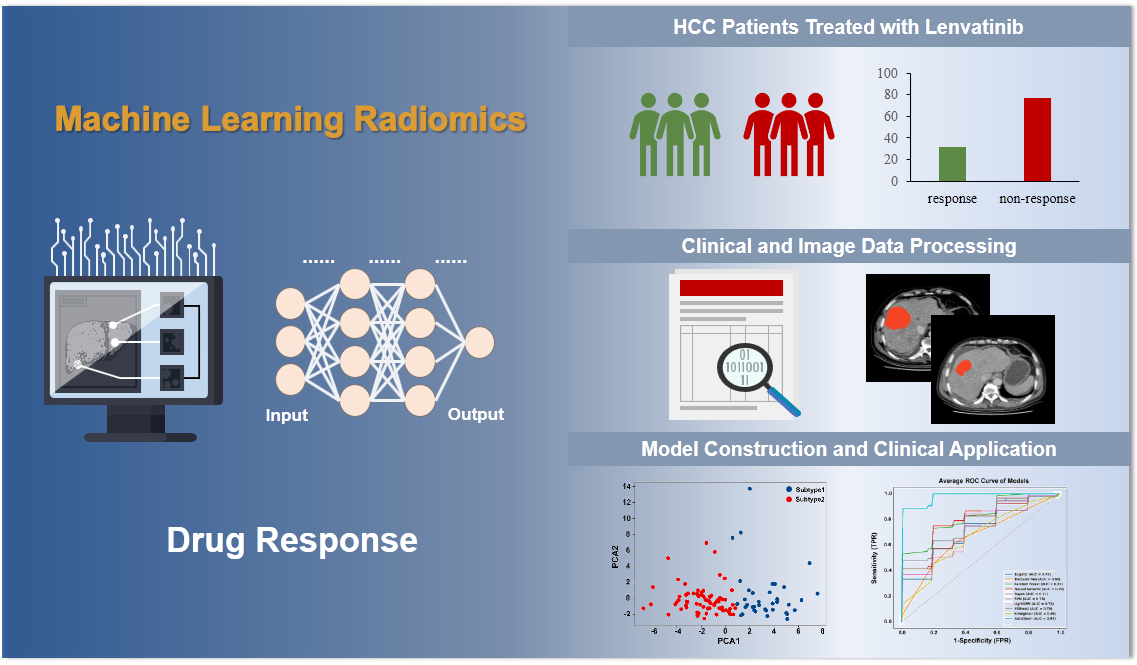Chen Gang's Team Published New Paper in Clinical Cancer Research
 2023-03-16
2023-03-16
 Office of Cooperation and Communication
Office of Cooperation and Communication


Hepatocellular carcinoma (HCC) is characterized by high incidence and high mortality in China. It has a fourth highest incidence in all malignant tumors and is the second most frequent cause of cancer-related death in China. About 65% of patients with HCC are at an advanced stage when first diagnosed, and they are not candidates for surgical resection. For HCC patients who can not receive curative surgery, there are various first line therapies, mainly including transcatheter arterial chemoembolization (TACE), atezolizumab plus bevacizumab, lunvnatinib, sorafenib, and combination therapy. To achieve the purpose of precision treatment, it is particularly important to choose the best treatment strategy among the multitudinous treatment methods.
Recently, Chen Gang’s research team from the department of hepatobiliary and pancreatic surgery in the First Affiliated Hospital of Wenzhou Medical University published an article titled “Prediction of response to lenvatinib monotherapy for unresectable hepatocellular carcinoma by machine learning radiomics: A multicenter cohort study” in Clinical Cancer Research, which is an international authoritative journal in the field of oncology. They first reported a new method by using machine learning radiomics to predict the response of lenvatinib for unresectable HCC.
Between December 2018 and December 2021, 541 patients with unresectable HCC who received lenvatinib treatment from three medical centers were retrospectively reviewed. Following strict inclusion and exclusion criteria, 109 eligible patients were included in the subsequent analysis. The clinical information and image data from pretreatment CECT were reviewed and screened, and the treatment response was evaluated. The radiomics features were extracted and normalized, and 25 differential radiomics features were retained for subsequent analysis. Based on the 25 radiomics features identified, 109 HCC patients treated with lenvatinib monotherapy were obviously clustered into two subtypes through unsupervised clustering. Ten types of supervised ML classifiers were developed and tested for predicting the response to lenvatinib. In the training cohort, the results of the 10-fold CV showed that the AutoGluon algorithm achieved the highest ACC of 88.5% and AUC of 0.97, which was relatively stable in the external validation cohort (ACC of 86.1% and AUC of 0.93).
To our knowledge, this is the first study focusing on predicting the response to lenvatinib monotherapy through machine learning radiomics. Machine learning radiomics based on CECT may be a useful noninvasive and easy-to-use tool to predict the response to lenvatinib for unresectable HCC. This is valuable and practical for optimizing treatment strategies and guiding clinical decision-making for advanced patients with HCC, thus improving the prognosis.


